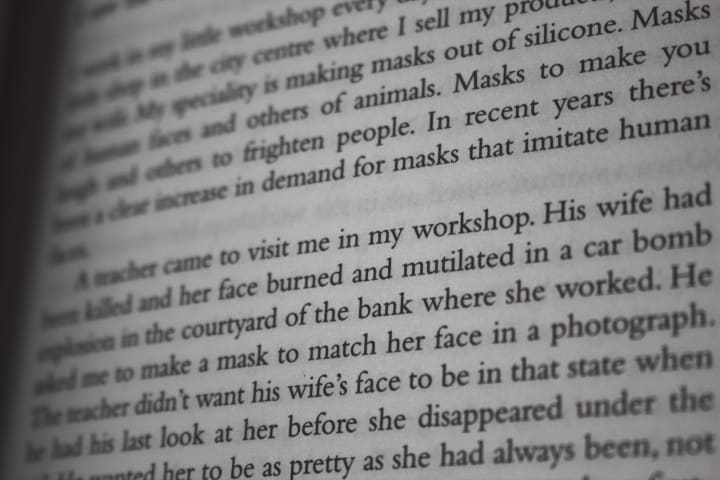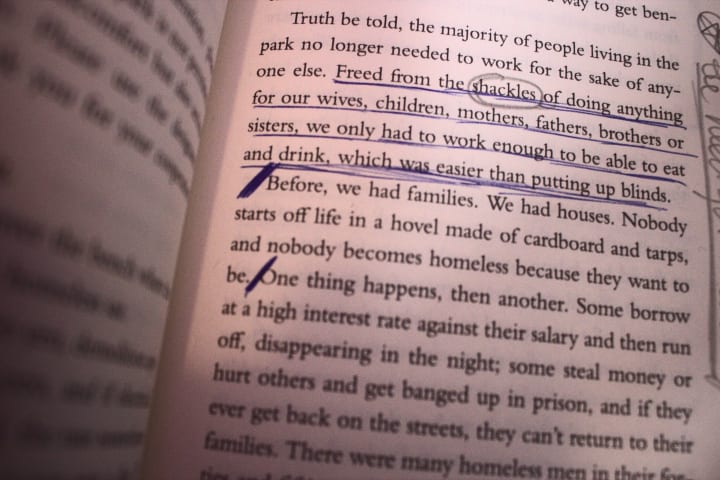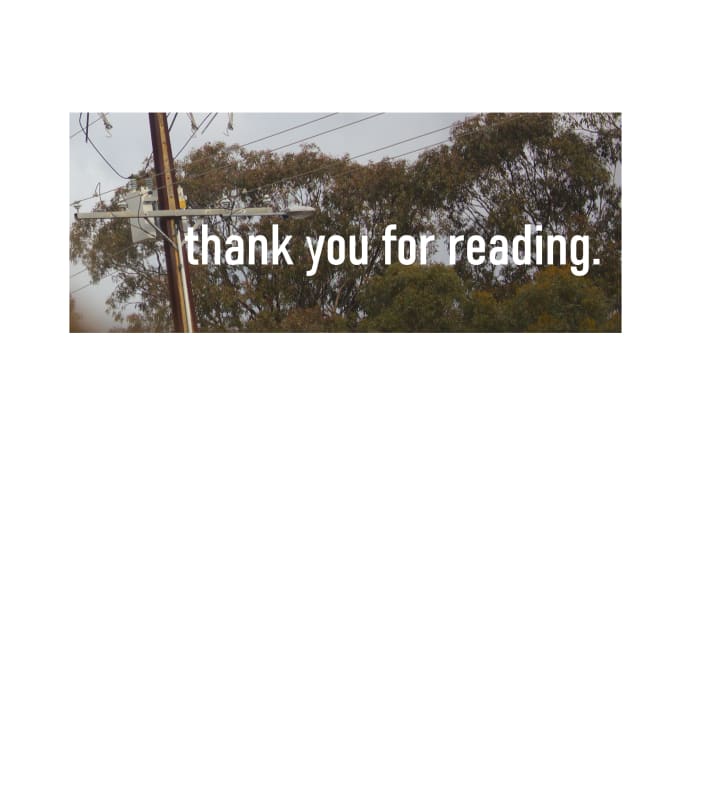Literature Review: 3 Novels
A Clickbait

One forgets that people sometimes write extraordinary novels.
If you're a committed reader: Difficult, even with close relationships to academics, librarians, book clubs, readers—streams or boards and all that dribble—to shimmy through the lacklustre, the good, the great, and to find amongst them a contemporary novel which is, in your own trivial instantaneous terms, a literary masterpiece.
If you read a book or two a year: This encounter is RATHER rarer.
There's so much shit to read.
I do not know if these novels are masterpieces. (They might be for you.)
I do know that they're masterful.
-
review format
(Synopsis.) I emulate the novel's form via a brief "synopsis" of the narrative, followed by a quote from the text.
(Synthesis-) I exposit my personal experience of the narrator and novel; what they made me feel, think about, forget, in a word-
(For You?) I describe the novel's perfect reader, it might be you?
N.B. All of these novels have been translated into English. I use the word 'narrator' to mean 'author' and 'translator' simultaneously.
-
The first novel contains confronting content.
-
-------------------------------------------
Book One - God 99

a novel by Hassan Blasim, translated from Arabic by Jonathan Wright, Comma Press, UK. 2020. First published under the title Allah99, by al-Mutawassit, in 2019.

Synopsis.
A man is watching you watch his television. He reveals his emails, a particular kind of nakedness. Friends of this man say that his Arabic is vulgar. With it, he writes a novel and a blog. Medusa rears its head, it's horrifying: decapitations, and hair that stands on edge. Can corpses have a gender? sex? Explosions, car bombs – 'sectarian' violence, whatever that might mean, another click, please no thank you. The clicks are heating up, heckin sexy, said without irony, interwoven awkwardly with emails from a distinguished mentor who died of a terminal illness. Sentimental weight. The man just wants to put the C word here. Someone is laughing in the dark, not the same man as before, this one has an iPhone.
There are ninety-nine names for God and they all mean peace. A car speeds towards the public, its driver seeks to take the lives of ninety-nine Swedes.
The vehicle collides with a barrier. Literary wifi, screams, carpet bombs, re: your message, message received. A brown writer in Finland fights his own beliefs, and speaks: "the novels fucking dead".
Or a man is speaking for him.
iRony indeterminate.
/ An excerpt—
The first thing I do is browse through Facebook. I discover that yesterday I mistakenly clicked on the heart button under pictures of dead bodies in Baghdad. I meant to express solidarity with the dead by using the angry face.
page 61
Synthesis-
Reading this novel resembles an explosion. Anything increasing adrenaline gives a vignetting to the experience of life. Hyper focus. Tunnel vision. Time dilation. But a person already doesn't see colour in their peripheral vision, but think that they do, and human vision is already vignetted in a thick gaussian blur (bar a single pin-prick: the focal point). Yet people behave as though their eyes are rational, 4K ready. What is considered human perception is a series of resemblances, gauged by attention: this is not profound, it is barely a footnote of philosophy.
The narrator notes that blur, retains it, and names it. I did not know what to do with this. I was discomforted. I was bored, at times. He concedes that "blur" is as fallible as "desert storm" then dumps his heart because of it. Neither phrase ("blur" - "desert storm") encounters the horrific, the event; they do not start to catch a glimpse of it. (The same motion as erotica, well distinguished from the orgasm.)
And neither phrase ("blur" - "desert storm") even if emphasised enters the heads of the people that need it most: the privileged few: those who have evaded horror all their lives, evaded even images.
I forgot a large portion of my narcissisms while reading this novel. Every kind of hurt is real. Human suffering is innumerable, ethereal; and it is the ethereal that which must reconcile first of all. Twitter is trapped in normative trickbait, images as warzone shitpost, comments aren't a kind of arguing – amnesia.
Not every kind of hurt is a shockwave which appears as fast as it vanishes and whose casualties can never disappear. In some streets, bodies lay the streets. A bomb is not a joke.
The narrator (I truly think) renders grotesquely insufficient depictions of the grotesque, delibro facto.; they collapse, inevitably, into that one-worded singularity of smut: Pornographic-
For You?
An ideal reader? You have an interest in modern history. You're curious about what it means to be a militant, or a civilian in a war zone. You wonder what it means to die. You've been to a war museum. You had a Myspace account. You sometimes think about September 11, or, out of a macabre curiosity, occasionally watch footage of the attacks. You don't mind curse words, but you do not use them, except sometimes in jokes. In a neutral psychiatric setting, you would concede that you are moderately-to-significantly addicted to the internet. You can define some or all of these words: migrant, expatriate, denizen, terror. You've read a novel by J. G. Ballard, Bret Easton Ellis, Italo Calvino, or Roberto Balaño, or any of the stories of The One Thousand Nights and One Night. You have an interest in Islam or Buddhism. You know what mourning is.
-------------------------------------------
Book Two - Aseroë

a novel by François Dominique, translated from French by Richard Sieburth & Howard Limoli, Bellevue Literary Press, NY. 2020. First (and eternally) published under the title Aseroë, by POL éditeur, in 1992.

Synopsis.
ASEROË.
This novel is a fungus. A (spore whose) name is Aseroë.
It begins, of course, with sex.
The stem of a mushroom, like the stem of a human brain, wants to name itself as such, eventually. Poetry begins because of it. Because of poetry the novel, stubbornly, is born. A man—a genuine lover of poets—now wants to write a novel. He writes a scene, and another scene, and another, placing each of these scenes into a bag he first had been carrying (now tugs) as he wanders through a nature preserve.
(The nature seeds the ideas, the walking fertiliser.)
The scenes have a vague unity but form a tale only for the forest. Aseroë attempts to list them:
- item one
- item two
- item four
His words undercut his perceptions, or possibly the opposite. The man continues forth in his philosophical investigations—his novel—for hours, days, years. Growing exhausted he looks at the bag he has been tugging. It is made of mesh. Mesh makes spores spread – they are essential for a job like this. Like this—? ‘No,’ the man has realised. He is not picking mushrooms.
Absentmindedly, he has forgone his own intended task: conflated the motions of storytelling (his passion) with an automated motion of his past: identifying funguses (his life's vocation).
His great novels fallen through the mesh.
‘And I thought I brought a plastic bag.’
Their words, all this time, have been soaring, spilling out, and settling on the sodden earth. The author wants to cry but maybe it is only raining. Years trail behind him. All those words, letters, ink-dots, abandoning each other... Not only lost to him, lost to each other: child-species set upon future 'family trees' (not a great term in the context of fungus, I concede); each, becoming an ancestor, becomes unique, novel. Intentional or not, this man is the life-giver to a thousand (and 1) species of fungus. From function, this number may accede millions before he’s even died. Dread follows in the thought of work. He (and his translators) know the parents' living duty: a child must be named.
He sighs; and Aseroë, again, is born.
/ An excerpt—
This period was a nightmare. To blacken page after page with newly coined words could only be a meaningless exercise, whether in the service of poetry or the natural sciences. But I persevered, despite myself, in this distressing task. [...] The fungi kept coming and coming. . . . I had covered endless notepads and notebooks with my crabbed handwriting.
page 26, 27
Synthesis-
Reading this novel reminds me why I read novels. Every chapter title of this novel is the same: Aseroë. I cannot tell you why, and yet I can intuit it. Some of this novel I find unreadable – an alien language. But only alien to one's language in the way that fungi is to mammals. In the word there is the word: Kingdom. No such word in this disparity: we share no kingdom with the mushroom.
We do share Aseroë.
In reading this novel I had no need to despair over the well illuminated fact that narrators are handlers of the corpse. Translating prose is a fascinating thing. Translators are novelists. Translators are poets. Translators are authors.
It is not tautology to call translators authors' authors: this one fact, I believe, is the essential spirit of Aseroë.
Shroom season.
Aseroë-
For You?
An ideal reader? You order meals with mushrooms and enjoy to eat them. You've read a lot of classic novels, or written essays about literary form, animal classification or behaviour, or meta-physics. You've had a class in French. You study/research/teach biology or chemistry. You have a strong preference for shorter books. You have at least a rudimentary knowledge of the periodic table. You've read the works of W. G. Sebald or J. M. Coetzee, or Robinson Crusoe. You write and read contemporary poetry, even if it's only for yourself. You prefer to read poetry aloud, rather than in your head, especially if it's only for yourself. You can define one or both of these terms: pessimistic nihilism, analytic philosophy. You like to learn the names of plants, animals, and other species. You know what hallucinogenics are.
-
-------------------------------------------
Book Three - Tokyo Ueno Station

a novel by Yu Miri, translated from Japanese by Morgan Giles, Tilted Axis Press, UK. 2019. First published under the title JR Ueno-eki Koen-guchi, by Kawade Shobō Shinsha, in 2014.

Synopsis.
A homeless man stands stoic in a garden. He watches a business man run. Birds' sounds. An emperor arrives. The homeless man had a son, and that son was born on the very same day as the man-king, the man-king who is standing now before the man, waving with his princess for the forming crowd, themselves a spectacle. Birds' sounds. Man run.
His son had died at twenty-one.
Kōichi was dead.
And he would be tomorrow, too. From now on, he would always be dead (page 52).
The narrator makes herself present, interchanges prose with 'realer' documents, and wants to know how many weeks it takes to make a year. How many weeks to grieve. How many weeks to be alive.
She offers up a test.
She requests 45 seconds for the reading of three repeated words:
NAMU AMIDA BUTSU
NAMU AMIDA BUTSU
NAMU AMIDA BUTSU
A tsunami is not a quiet thing. Neither is nuclear energy.
Know how far a tsunami moves in 45 seconds? An atom?
"You totally forgot to breathe--"
she says to you, laughing,
"You made it like four seconds-- four-point-five!"
/ An excerpt—
The reason I'm living in an area surrounding a nuclear reactor which has been irreparably damaged—and where I continue to write my novels, run a bookshop, and put on plays—is that the pain those who have lost their homes and been forced into a wandering has shaken the pain that makes its home in my very existence.
page 190, author's afterword
Synthesis-
Reading this novel reminds me to pay attention. Architecture, trees, faces. It's funny that public infrastructure automated voices, announcing next stops and such, were usually recorded somewhere.
In other places, they are synthetic.
Also, emergency sirens sound different in different countries, cities, schools and industries.
The narrator gives this novel an enormous set of lungs. She loans them for a time; it is the opposite of sprinting, walking isn't accurate.
For me, she makes clear the link between watching and standing (this is reason one why buses are wonderful, their movements are both). Peaceful places orientate this equilibrium: a garden, forest, pond. The challenge is the frantic place: a city crossing, a screeching subway train, an areoplane. All impede mindfulness; and therefore you exhume it.
But what if the bus was Capital-S sublime? Beautiful as the mountain top?
When reading this novel I remember to remember my belief that buses are among the most supreme aesthetic masterpieces in the fabric of existence; despite (or perhaps incidental of) their occasional utter filthiness, degeneracy, and stink.
Listen in, she's been saying – she hasn't been reading bus schedules for fun: How you feel about what you do in a place informs the way that you feel about being in that place.
Finally, and again in the shadow of the Atom, the father arrives always in the form of a departure.
While reading this novel the narrator inspired in me a joke, a joke in the shape of a Kafka scene, an indistinguishable face growing impatient in a room of public governors, his belly being one of those bellies that's never fully empty, even today, despite the fact just yesterday his city had been swallowed up by a 50ft tsunami.
An independent journalist comes bursting into the room, probably a socialist, equally contemptible in his utter brattishness to the sweaty men that fill the room, yet still a hero; and he is interrupting the meeting, yelling: "What about the 11 homeless men that have drowned Minister? Denied shelter turned away when waters- OFF me brute! I said off me," (a couple of security guards are tugging at him) "Sir you are a coward you do not care for the people Minister you should be ashamed—!"
And just as the man is taken from the room and thrown for the street, in the busy public chamber, a lower ordinate speaks, a little over eager: "Such disorder, and in a public house!"
"Yes, enough!" replies the foremost authority. "And back to the homeless subject."
NAMU AMIDA BUTSU
NAMU AMIDA BUTSU
NAMU AMIDA BUTSU
The narrator will ask you to listen, and she listens with the Breath-
For You?
An ideal reader? You have been to Japan. You have passed through Tokyo Ueno Station. You have seen the films of Hayao Miyazaki, of Studio Ghibli. You find it hard to look at homeless people when you pass them on the street. Sometimes you find it hard to look away. You've given money to a homeless person. You contemplate wage disparity. You have learned about the Chernobyl disaster, or tune in to the Olympics Games. You people-watch. You're disinterested in Murakami, not disinterested in Mishima, or have read a novel by Marilynne Robinson. You have had a love affair with Herman Hesse. Your life has been significantly impacted by the COVID-19 Pandemic. You're afraid of swimming in the ocean for myriad reasons, past as well as speculative. You can identify the works of Hokusai, and not just waves. You watch animals, and not just birds. At any point throughout your life, there has been six+ continuous months during which you caught public transport ten+ times per week. You know what Atomic Bombs are.

Thank you for reading. If it was worth your time, tips of any size contribute to my living, and are greatly appreciated.
If you enjoyed this review but do not wish to tip, sharing it also makes a difference, and pressing the heart hits the algorithm.
If you decide to read one of these novels and would like to talk to me about it, email me at: [email protected]
with love
- T VV
About the Creator
Taylor vvestmacott
Taylor is a screenwriter and novelist who lives and works on Kaurna land.
https://linktr.ee/taylorvvestmacott






Comments
There are no comments for this story
Be the first to respond and start the conversation.